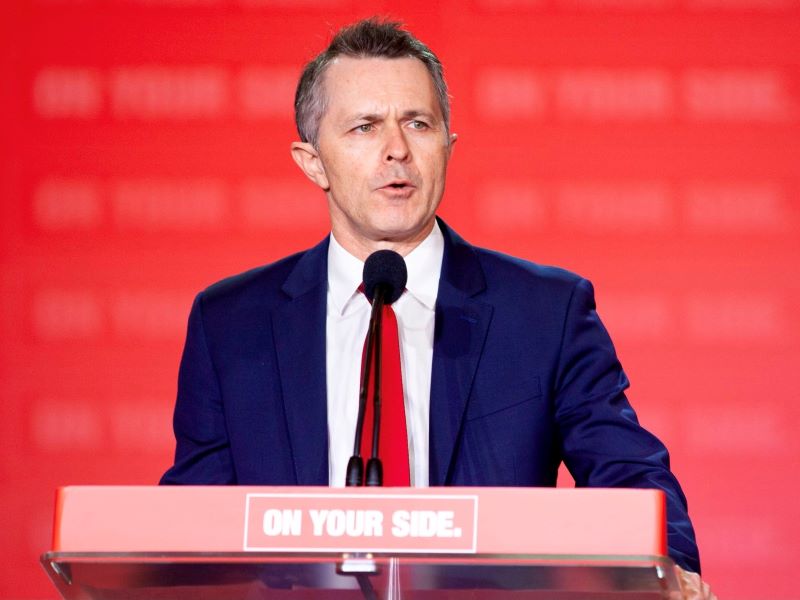Higher education and research stakeholders have issued a warm welcome to Australia’s newest Education minister Jason Clare, despite his arrival coming as a surprise to many. Groups say they are excited to work with both Mr Clare and a new Labor government offering a chance at policy “freshness”.
Mr Clare, whose profile was raised with a sharp election campaign performance, has held senior portfolios in Government and Opposition but never Education.
His appointment on Tuesday came as a surprise and was at the expense of Tanya Plibersek, who moved to Environment after six years holding the Education portfolio in Opposition and building a constructive relationship with the sector.

While Mr Clare has never held Education, he has championed its power after being the first in his family to go to university.
“Our education system is the most powerful cause for good in this country. Run well, it can ensure that every child has the opportunity to reach their potential. It is the great equaliser in an unequal world,” Mr Clare said in his maiden speech in 2008.
At the time he called on the then-new Labor government to invest more in public education and ensure “postcodes do not determine opportunity”.
University funding and access remains a challenge a decade and a half later, with university groups flagging it as a top priority in their welcome messages for the new minister.
Jason Clare was first elected to the Parliament representing Paul Keating’s old seat of Blaxland in the Sydney’s west in the 2007 ‘Rudd-slide’. During the Rudd-Gillard-Rudd years, he held senior roles including Minister for Defence Materiel, Minister for Home Affairs, and Minister for Justice.
Mr Clare arrives from a Labor election campaign about building back better, which included a commitment to up to 20,000 new university places and the promise of a Universities Accord to drive lasting reform.
“Universities are going to be absolutely central to fulfilling the government’s plan to boost Australia’s economic performance,” Australian Technology Network (ATN) of Universities executive director Luke Sheehy told InnovationAus.com.
“We can’t do all the research and development and innovation if we don’t have a pretty good look at how we properly fund basic and discovery research at our university. So that really is a big gap the previous governments left, and we know it’s a big challenge for all of us. So, we’re going to have to work really closely with the government to find ways to put that on a more sustainable footing.”
The higher education workers’ union has also flagged funding and working conditions as a top priority for Mr Clare, who is part of Cabinet.
“Issues that urgently need to be addressed include job security, wage theft, manageable workloads, and ensuring universities are safe, respectful workplaces,” National Tertiary Education Union national president Dr Alison Barnes said.
“We also want to work with the new Minister on a Higher Education Funding Strategy for universities, that includes reversing funding cuts to research as well as scrapping the Job-Ready Graduate Package and associated fee increases which has caused student debt to surge.
“Universities should also be accessible for all students and not based on their ability to pay.”
Universities Australia chief executive Catriona Jackson said Mr Clare understands the essential role of universities and that the group, representing most of Australia’s public universities, is looking forward to working closely with him and the Albanese government.
“The nation is facing some big challenges, but it can also seize big opportunities. Universities are ready to play their part,” Ms Jackson said.
“As a nation we need more education and knowledge – not less, and more skilled graduates – not fewer, to fulfil the needs of a modern economy and society.
“Universities help meet the increasing demand for highly skilled people and conduct the research that underpins Australia’s prosperity, competitiveness and security.”
The Group of Eight universities, which represents research-intensive universities, also welcomed the arrival of Mr Clare, and noted universities will increasingly be working with government across a number of portfolios.
“His long-standing commitment to improving the lives of Australians through education will help ensure universities can continue to deliver the quality teaching, ground-breaking research and social support necessary for Australia to meet the challenges ahead,” Group of Eight chief executive Vicki Thomson said.
“The influence of our universities however extends far beyond the education portfolio, and public policy in areas including industry and employment, foreign affairs, defence and health will determine how universities can contribute to the prosperity of the nation.”
The ATN’s Mr Sheehy agreed that universities impact on Australian prosperity extends beyond the Education Portfolio.
“There’ll be a clear role for universities in building Australia’s future prosperity. Not just through investing in universities but [also] our role in working on building new ideas, building the tech workforce, building cybersecurity capability, building more resilience and modern manufacturing, [and] diversifying our economic base,” he said.
“So we’re really excited about it. New governments bring a freshness to policies and there’s certainly a lot that we can do better in Australia, and I think this is a great opportunity with this new government.”
Do you know more? Contact James Riley via Email.

